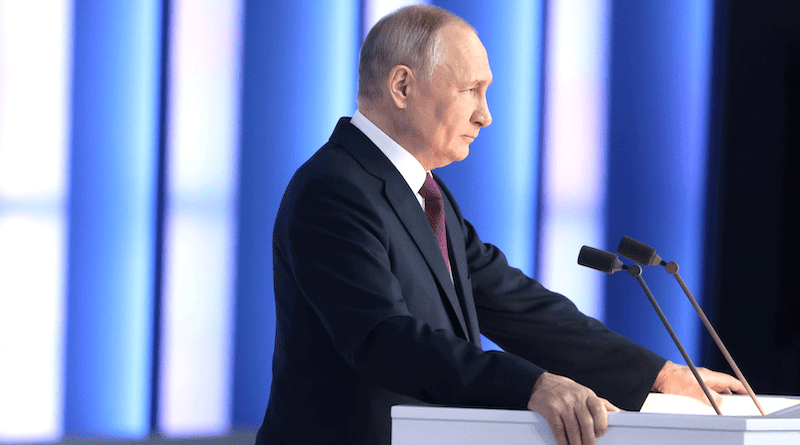Russian Opposition Giving Kremlin A Victory By Making Defeat In Ukraine Centerpiece Of Its Campaign – OpEd
By Paul Goble
Seeking the defeat of one’s own country has never been an effective political strategy, Grigory Golosov says, and making the defeat of Russia in Ukraine the centerpiece of its political campaign as the Russian opposition abroad has done is especially counterproductive.
While the opposition’s position is both morally justified and politically understandable given its presence in the West and the attitude of Western countries toward Russia and Russians, the political scientist at St. Petersburg’s European University says, it doesn’t help the opposition win power which is what its primary goal must be (holod.media/2023/03/15/porazhenie-rossii/).
“If the opposition can win only as the result of a military defeat of the regime,” Golosov argues, “then it can also come to power only because it receives power from an external winner,” someone who “whether we like it or not,” can only be called “’an occupation administration.’” And “no nation will accept such a prospect will joy.”
Thus, as much as one may want Russia to suffer a defeat for its criminal war in Ukraine, Russia’s opposition abroad “could not have made a better gift to the [Putin regime’s] propaganda … even if it had tried very hard.” The opposition needs to recognize this rather than assume that taking this position will bring it victory.
According to Golosov, “this fixation on the military defeat of the regime is largely due to the fact that the main audience of the Russian opposition abroad are [Russian] immigrants [in Western countries].” Such anti-war rhetoric helps “protect immigrants from the suspicious and hostile attitudes in their new countries of residence.”
In sum, he continues, “this is what the idea of ‘good Russians’ boils down to.”
In one respect, “such an idea could be quite productive. Many immigrants probably have problems when they move to countries where Russia’s reputation is to put it mildly tarnished.” Émigré opposition groups win support from them for such help, and they also win it from Western governments opposed to Putin’s war in Ukraine.
“But if we talk about priorities,” Golosov concludes, “then it seems to me that the foreign opposition should formulate an approach to the transformation of Russia that would separate that process to the maximum extent possible from external factors. Otherwise, this won’t be an opposition but an immigrant trade union.”

